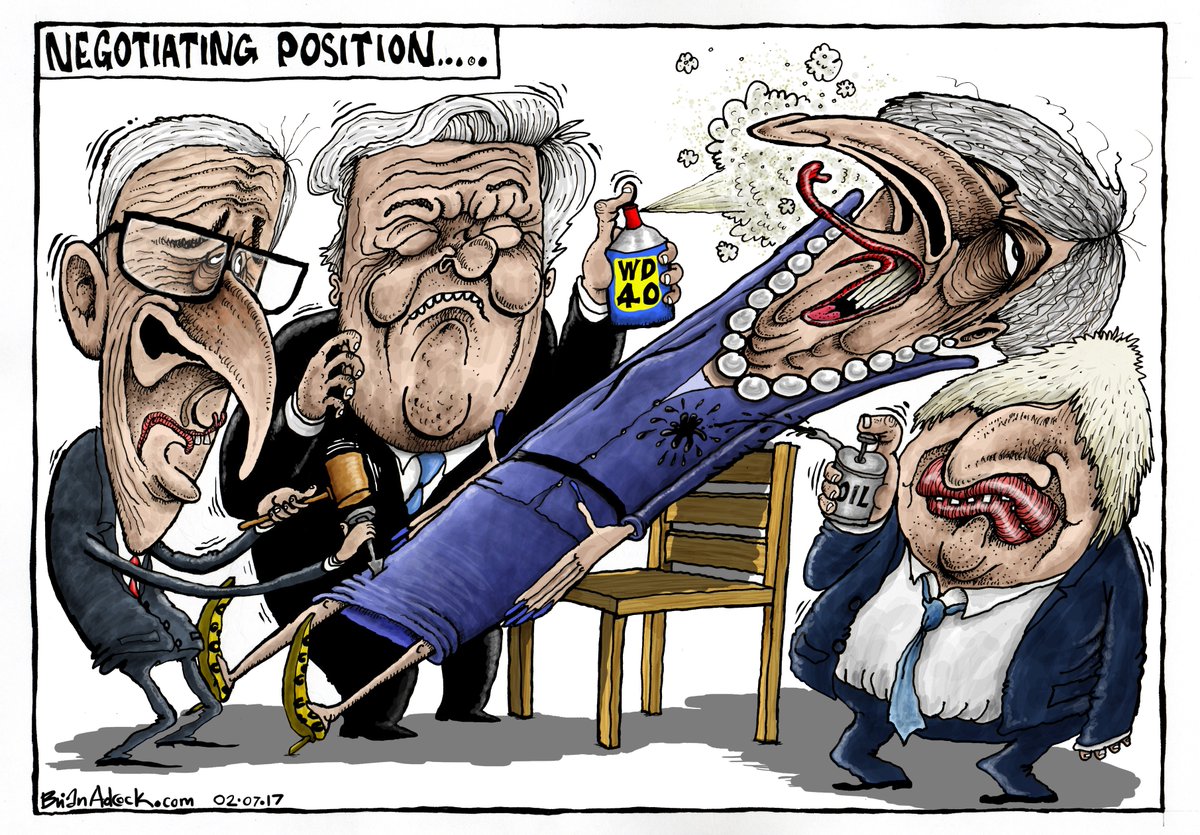What makes Theresa May’s negotiating position so difficult yet so unique?

I think for pretty much everyone here it’s clear that Theresa May is a significantly weakened individual and has been for the past year – especially since she called the GE2017 in which she lost her majority in the Commons. It’s not just that though, personally, I feel somewhat sorry for her as she has been left to rot by pretty much her entire party and Mrs May has lost significant support in what was a distinctly presidential General Election last year that has undoubtedly made her job at negotiating Brexit unquestionably more difficult.
Let’s start with the General Election last year. May was
advised to be largely indistinct during the election campaign, both because of
her shyness and her huge and unprecedented popularity amongst the electorate,
in order to retain the voters they had and increase the Conservative’s
negotiating power in Brexit with the intention of a greater majority in the
Commons. However, May and her advisers pretty much underwent the greatest and
most radical change to the Conservative Manifesto seen in 40 years with many
changes in policy alienating their very own voters – such as the Dementia Tax
which was widely criticised by the media. A failure to attend debates and a
shakiness around May led to her popularity rapidly decreasing and the
presidential election, per se, left May with a minority government that so
diminished her negotiating power both in Brussels and in Westminster.
And then the divisions within the Conservative Party started to
appear, the *blossoming* of the European Research Group with 62 signatories and
the so-called Tory Rebels who are pro-EU. With pressure from either side, the
PM decided to split the Cabinet so that May could effectively have the
controlling vote on Government policy. As straightforward and masterful an idea it
was, May undeniably failed to comprehend the flaws within her Cabinet which saw
three Secretaries of State resign within 7 weeks of each other, due to sexual harassment,
contempt and misleading Parliament. This left May scrambling to find
replacements that had similar views towards Brexit as their predecessor, no
matter how out of place they were for the job. May has seen two of her most
trusted colleagues, Amber Rudd and Damian Green, resign from Cabinet as well and
her job in Cabinet seems as though she is just fire-fighting every single
situation that arises from the mess created by her fellow ministers. This
disruption, no doubt enhanced with the resignations of David Davis and Boris
Johnson, has created an unduly amount of stress for the PM who hasn’t been
allowed to fully get on with the British Government’s negotiating position in
Brexit. The unprecedented scale of ministerial resignations taking place makes
May’s job in Westminster all the more difficult whilst distracting her from the
ordeal that has become Brexit.
Now, I believe we have already established that May appears
to be out of control of her party and Cabinet, but the extent of the betrayal
she faces from her own party is beyond astonishing. When May returned from her
Chequers visit with the Cabinet, there was this belief that the UK’s negotiating
position with the EU would have finally been determined and when May returned
there was an air of ‘Peace for our Time’ about her sentiments. However, that
was far from the case, despite the fact that every minister had agreed to the
Chequers Plan, David Davis resigned from DExEU just days after the agreement.
Not only had May been humiliated by this statement, much faster than Neville
Chamberlain might I add, she was forced to backtrack on her Chequers Plan and
adjust it based upon the ERG’s policies. I personally have never seen a time in
politics whereby Parliament is voting to reinstate Government policy from just
a few days prior – it was an extraordinary sight to see.
So, we all know Parliament has been granted the right to
have a meaningful vote on the Brexit deal but that does not mean that the
British Parliament is the only institution that can veto the Brexit deal. Not
only can the EU27 veto the deal, they each have specific red lines which cannot
be crossed. Essentially, most Eastern European states demand the rights for
Europeans in the UK to be guaranteed and that workers can still move on some scale,
which is quite reasonable if you think about it. However, difficulty arise in
two situations, one is with a split federal political system such as Belgium. The
Belgium Government requires both federal governments, Wallonia and Flanders to
approve bills and when CETA was presented to the Walloons, they rejected
the deal initially and so caused the whole deal to come to a standstill, Whilst
the Walloons did eventually agree to CETA, one slight disagreement to the
Brexit deal could leave Britain wandering with regards to a deal. Furthermore,
the issue of the Irish Border has threatened to collapse Mrs May’s government on numerous occasions. Mrs May has had to bargain with the Irish, the DUP and the EU to find
a preferable agreement; one where there is as frictionless trade as possible without
abiding by EU regulation and it’s created a situation in which the event of a desirable
outcome has become negligible. Yet if there isn’t frictionless trade on the
Irish Border the outcome is clear, no deal on Brexit.
So Mrs May is in a distinctly unique position in negotiating
a deal for Britain due to restraints held by her majority, her party, the EU,
the EU27 and the electorate; her lack of backing and support never fails to
surprise anyone in the UK.
If you have got this far and enjoyed what you have read, please let me know and I can make more of these posts :)
I
Comments
Post a Comment
If you have any comments or disagreements with anything said above feel free to let more know :)